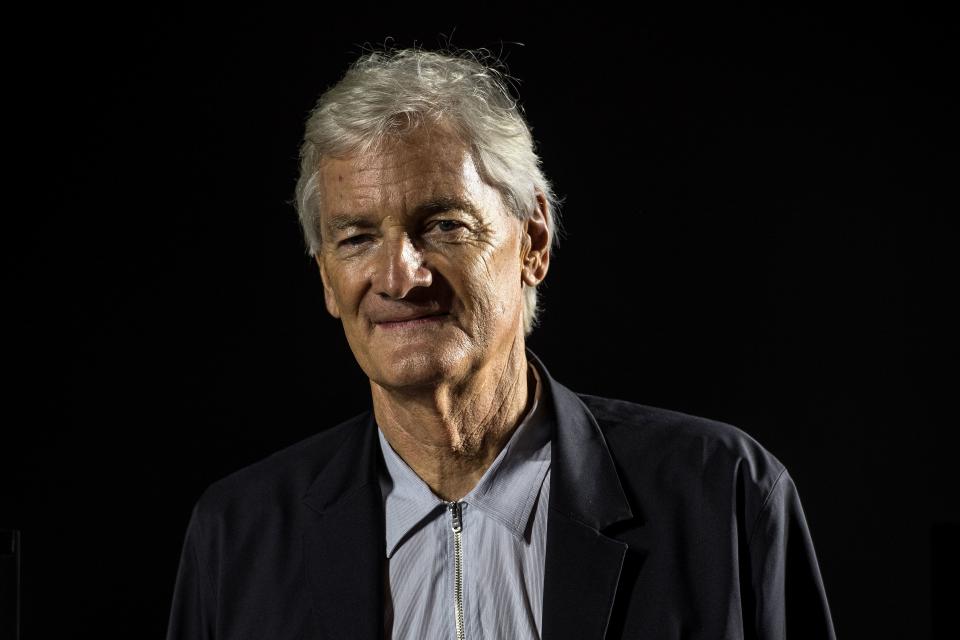Dyson scraps £2.5bn electric car project

Vacuum cleaner billionaire Sir James Dyson has scrapped ambitious plans to build a new electric car, saying he “simply can no longer see a way to make it commercially viable.”
Dyson announced it was abandoning the project in an email to staff on Thursday, seen by Yahoo Finance UK. The email, written by founder Sir James Dyson, said the automotive team had developed “a fantastic car” but the vehicle was unlikely to make money. As a result, the company had been trying to sell the division but was unable to find a buyer.
“The Dyson Board has therefore taken the very difficult decision to propose the closure of our automotive project,” Dyson wrote.
The billionaire entrepreneur said the effort was “not a failure”. He told Dyson’s 4,500 staff that “most” of the 523 employees working on the electric car project would be redeployed elsewhere in the company.
“For those who cannot, or do not wish to, find alternative roles, we will support them fairly and with the respect deserved,” Dyson wrote. “This is a challenging time for our colleagues and I appreciate your understanding and sensitivity as we consult with those who are affected.”
Dyson first announced plans to build an electric car in 2017, promising to have it on the road by 2020. Dyson said at the time that engineers had been working on a vehicle since 2015 and £2.5bn ($3.1bn) would be invested in the project.
While ambitions to launch a car have been abandoned, Dyson said staff would continue to work on next generation battery technologies that were part of the plans. Dyson CEO Jim Rowan said the company would also still invest a total of £2.5bn in next generation technologies.
“Our investment appetite is undiminished and we will continue with our £2.5bn investment programme in new technologies,” Rowan said in a statement. “We will focus our efforts now on the formidable task of manufacturing solid state batteries and other fundamental technologies we have identified; sensing technologies, vision systems, robotics, machine learning and AI.”
Sir James Dyson said in his email to staff: “Since day one we have taken risks and dared to challenge the status quo with new products and technologies. Such an approach drives progress, but has never been an easy journey – the route to success is never linear. This is not the first project which has changed direction and it will not be the last.
“I remain as excited about the future of Dyson as I have always been; our ambitions have never been higher, our ability to invest has never been greater, and the team has never been stronger.”
The company is best known for its high-end vacuum cleaners but it makes everything from fans to hairdryers and holds over 10,000 patents. Dyson said at the time the car project was announced: “We’ve been researching motors, batteries, aerodynamics, vision systems and robotics for 22 years. Now the time is right to bring all our knowledge and experience together into one big project – an electric car.”
Engineer Dyson founded the company in 1993 in Bath and it has grown to sales of over £4.4bn last year. The growth has turned Sir James Dyson into one of Britain’s richest people, worth $5.4bn (£4.4bn) according to Forbes.
The Brexit-supporting businessman was the subject of controversy at the start of the year when he announced plans to move Dyson’s headquarters to Singapore, where he has bought the country’s most expensive penthouse flat. Dyson denied the move was Brexit related, saying it was to “future proof” the company.
Tan Kong Hwee, assistant managing director at Singapore’s economic development board, said: “As Dyson’s decision not to pursue the electric vehicle business was taken at an early stage, the disruption to its operations and workforce in Singapore will be minimal. Singapore and Dyson have enjoyed a strong partnership for more than ten years and we look forward to building on this partnership.”

 Yahoo Finance
Yahoo Finance 